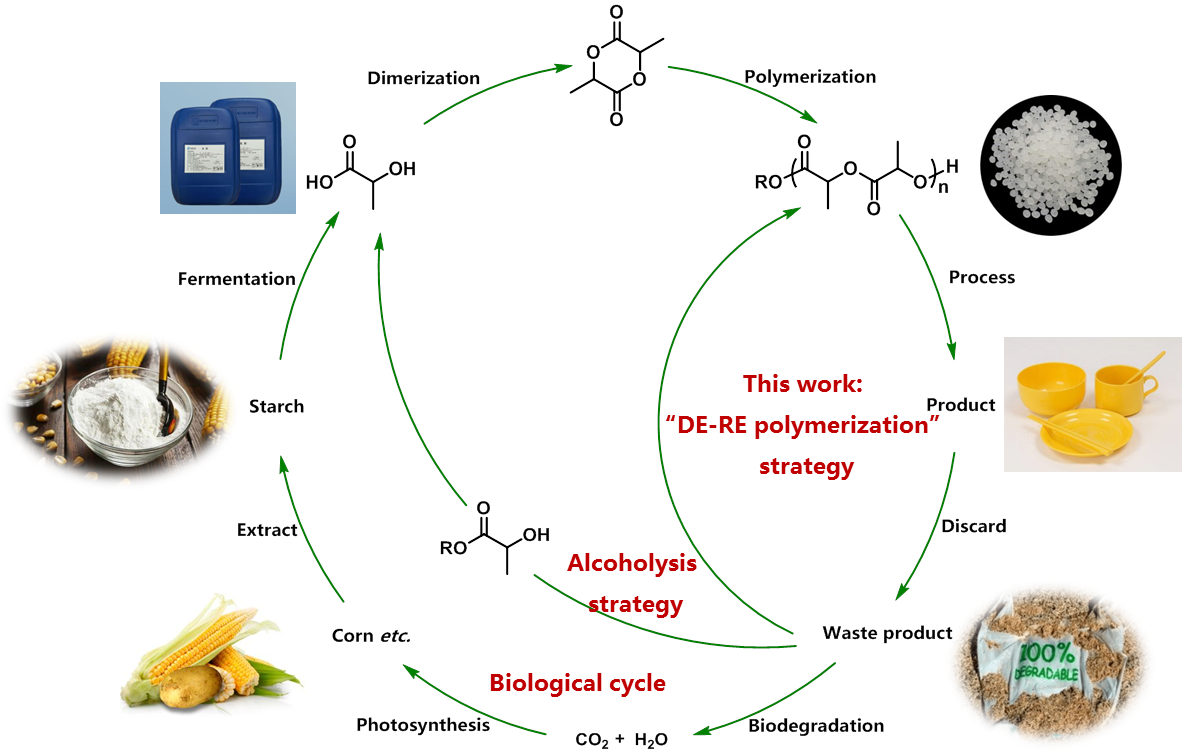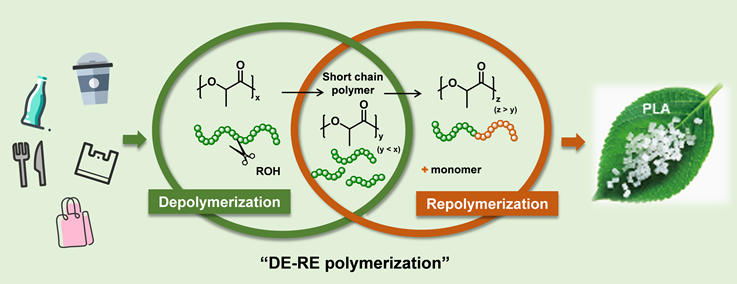Scientists Propose New Strategy for Chemical Upcycling of Polylactic Acid Plastic Waste
A research team led by WANG Qinggang from the Qingdao Institute of Bioenergy and Bioprocess Technology (QIBEBT), Chinese Academy of Sciences (CAS), has developed a new "DE-RE polymerization" chemical upcycling strategy, which converts polylactic acid (PLA) plastic waste to new PLA materials.
The study was published in Macromolecules on Jan. 27.
PLA, as a typical polymer material from renewable raw materials (starch), is gradually developing into major plastic in daily life.
"Although PLA can be degraded in nature, this process usually requires long time and specific degradation conditions, and the degradation products are carbon dioxide and water, which cannot be directly and rapidly recycled," said YANG Rulin, first author of the study.

The strategies for recycling of PLA. (Image by YANG Rulin and XU Guangqiang)
"The reaction conditions of this proposed strategy are mild, and the recycling efficiency of PLA is improved to the maximum extent. Besides, in the process of repolymerization, the final materials with different properties can be obtained by adding different types of monomers," said the senior author WANG Qinggang, Director of Catalytic Polymerization and Process Group at QIBEBT.

This study provides a new solution for the upcycling of PLA wastes into new PLA materials. The proposed strategy is not only effective in chemical recovery, but also promising in polymer modification and synthesis.
This work was supported by the National Natural Science Foundation of China and The Talent Project Fund of Shandong Province.
(Text by YANG Rulin and XU Guangqiang)
Contact:
CHENG Jing
Qingdao Institute of Bioenergy and Bioprocess Technology, Chinese Academy of Sciences
Tel: 86-532-80662647/80662622
E-mail: chengjing@qibebt.ac.cn